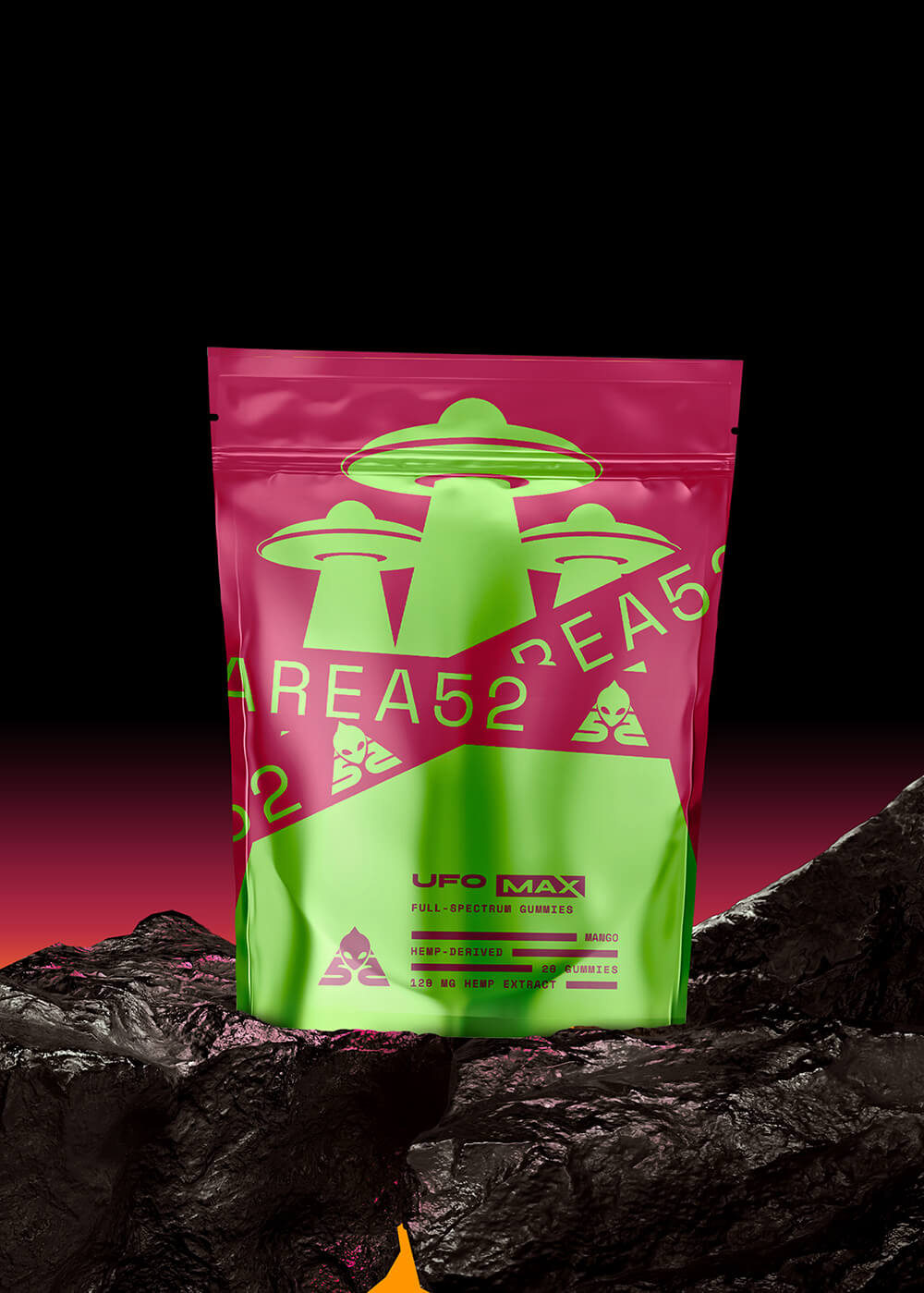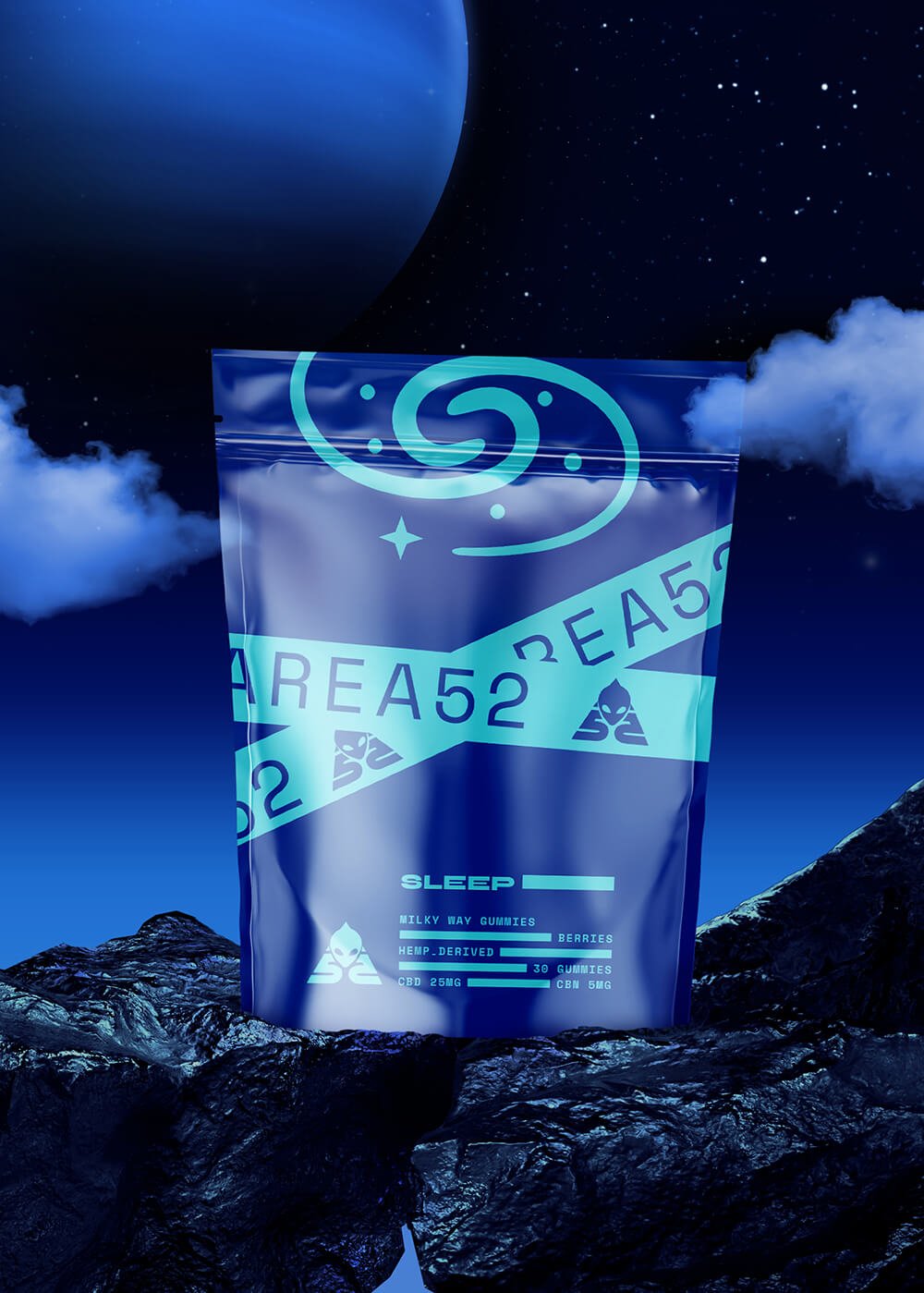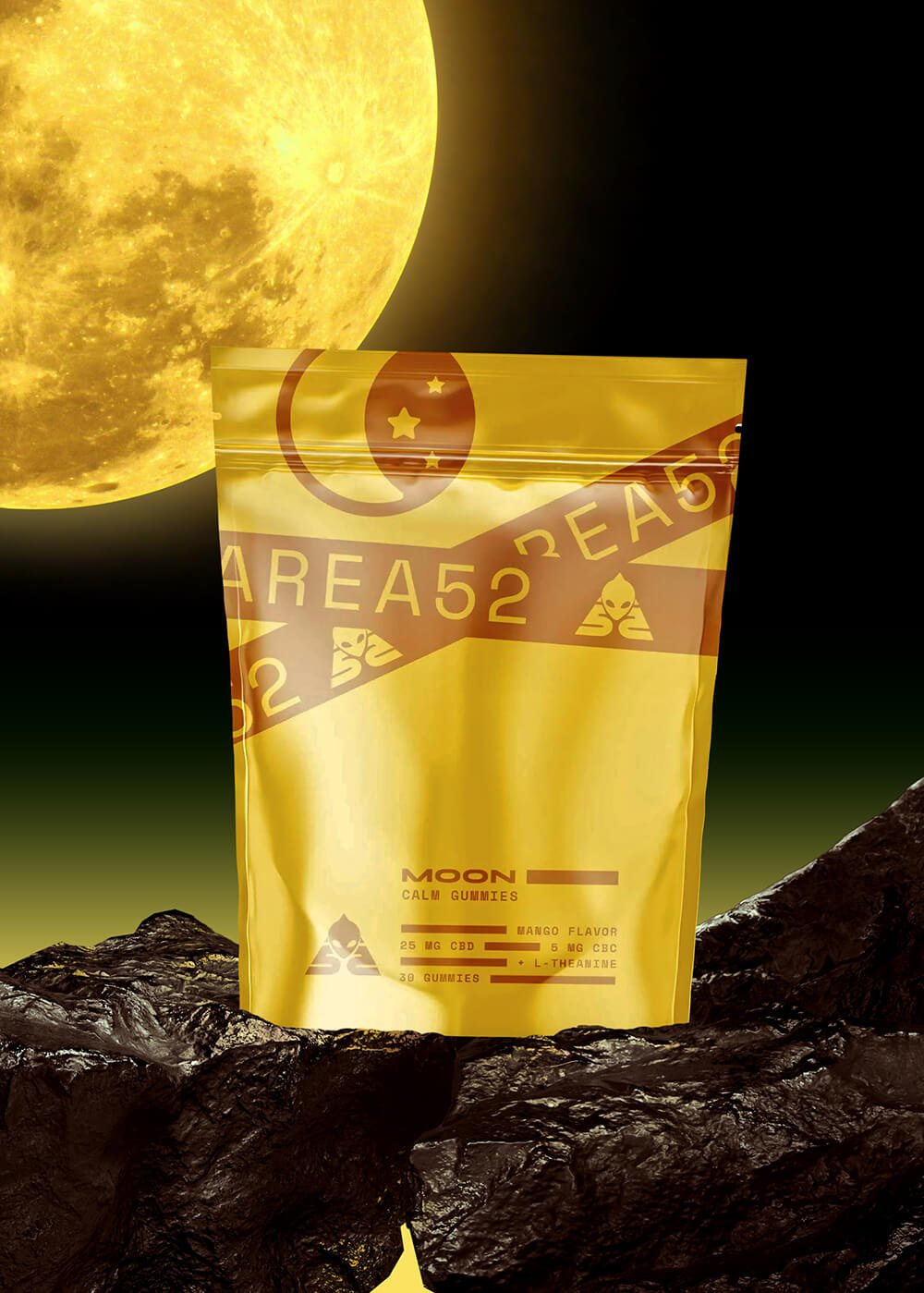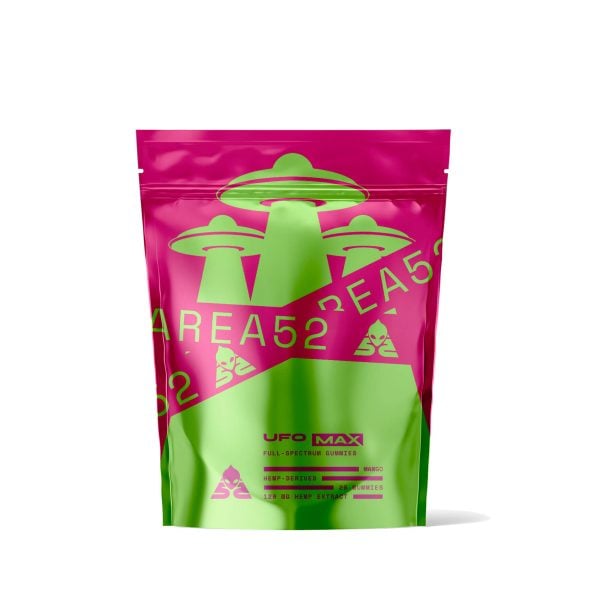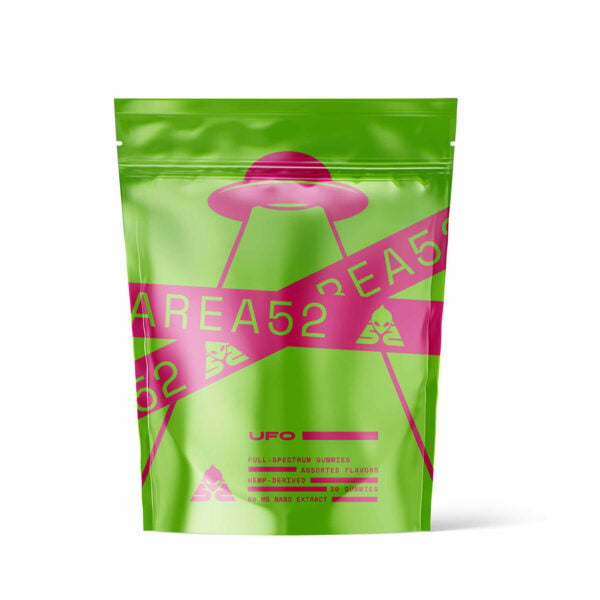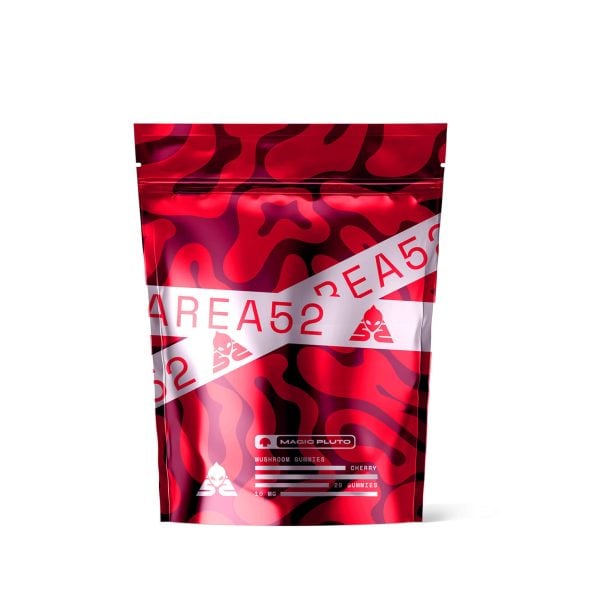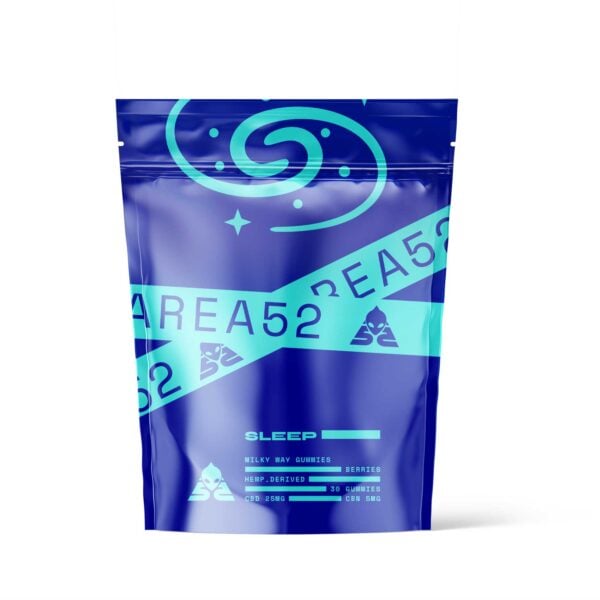Is HHC Legal in Your State?
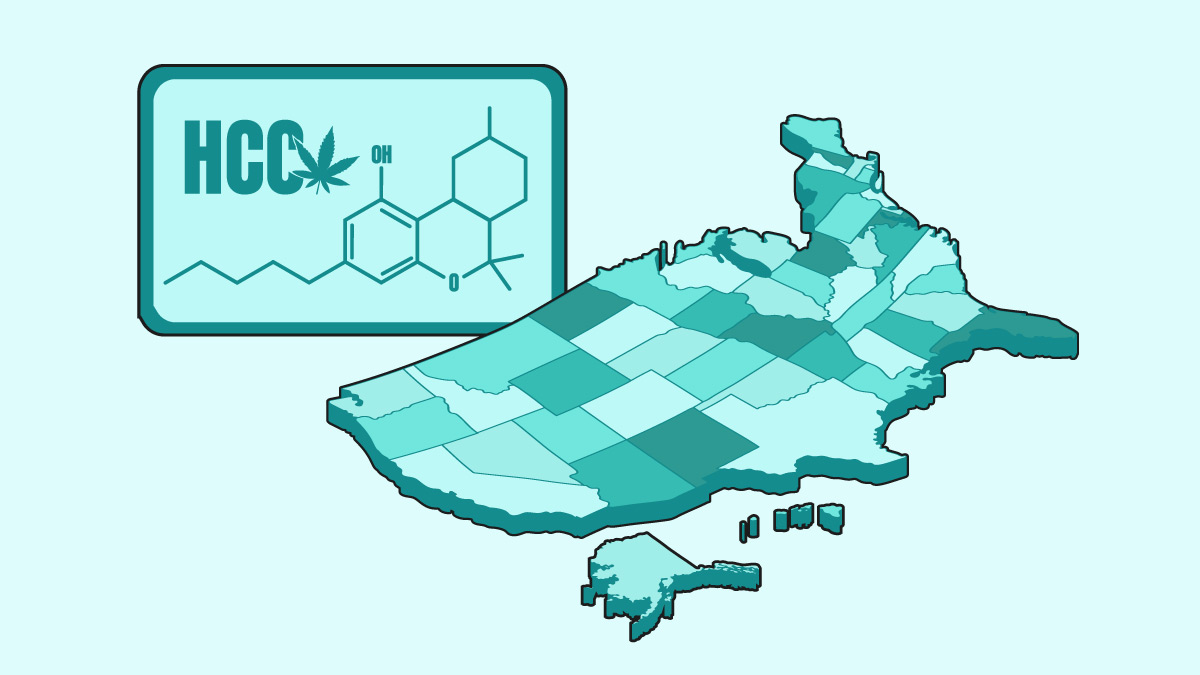
One of the main reasons HHC is so popular is because it can be made from hemp.
According to the 2018 Farm Bill, HHC is legal as long as it’s derived from hemp. However, some states have conflicting laws that could make HHC illegal, and many consumers are also unaware of the restrictions hemp derived HHC products face in other states.
There’s just one problem — because HHC products are so new to the market, there’s no direct mention of them in any local state law. Because legal HHC regulation falls within a gray area, this leaves a lot of room for i
In this article, we’ll shed light on the current federal and state laws on HHC in all 50 US states, along with some insight into how these laws could change in the near future.
What Is HHC?
Hexahydrocannabinol (HHC) is a naturally-occurring cannabinoid chemically related to THC. To learn more about HHC cannabinoid, we first need to know that it was discovered in the 1940s but couldn’t be extracted in high enough quantities to be of any use — until recently. New methods of isolation have been developed that can produce high quantities of HHC for use in commercial products.
There aren’t any clinical studies on HHC’s effects in humans, so everything known about its effects comes from anecdotal reports or is projected from current research involving THC.
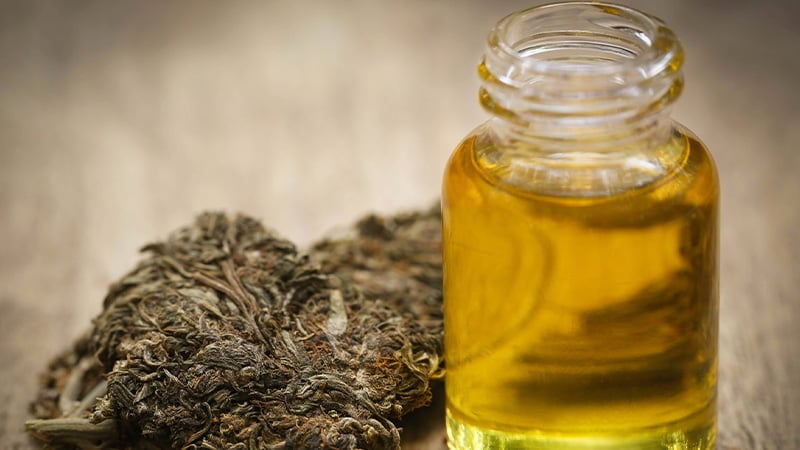
Is HHC Natural or Synthetic?
HHC has been found numerous times in raw cannabis plant. It’s naturally occurring, but only in trace amounts.
Most THC converts to CBN (cannabinol), but a small percentage remains long-term in the form of HHC.
With that said, it’s also possible to create hemp derivatives like HHC synthetically. It should be noted that all synthetically-derived cannabinoids are illegal.
Is HHC Legal?
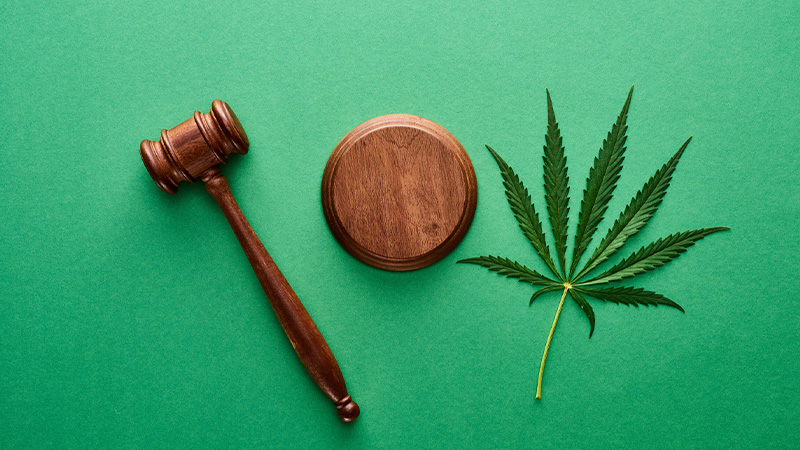
The legal landscape of HHC is complicated, but most experts agree that, similar to legal hemp derived cannabinoids like CBD and hemp derived THC isomers like delta 8THC, it’s legal under current federal regulations (2018 Farm Bill) — as long as it’s sourced from hemp and contains no more than 0.3% THC by dried weight.
However, some states have chosen to restrict alternative cannabinoids like delta 8 THC. While no state legislature has explicitly restricted HHC yet, many assume that states with delta 8 restrictions are likely to invoke similar restrictions on legal HHC if it gains enough popularity.
HHC Legality by State
It’s important to remember that there aren’t any federal laws restricting hemp derived HHC products. However, it’s safe to assume that states that have passed delta 8 restrictions would likely consider HHC illegal as well or other hemp derived cannabinoids that induce psychoactive effects like delta 10.
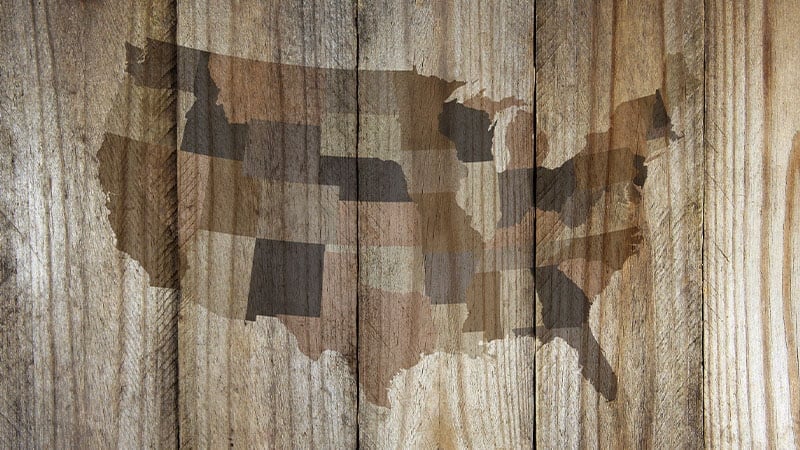
The legal status of HHC in each state:
Alabama
HHC Legality: Regulated
Alabama state law bans all tetrahydrocannabinols, including HHC, in smokables like vapes and flowers, but are unrestricted in consumables such as edibles, gummies, oils, and tinctures.
Alaska
HHC Legality: Illegal
Alaska laws prohibit the use of chemically-synthesized cannabinoids like HHC, THCO, THCP, delta 8, and delta 10, even if they’re sourced from hemp.
Arizona
HHC Legality: Illegal
Arizona considers hemp-derived psychoactive cannabinoids like HHC as Schedule VI controlled substances, and they are, therefore, banned from being sold and consumed.
Arkansas
HHC Legality: Illegal
Arkansas law initially resembled federal law — suggesting that only marijuana-derived THC is illegal and hemp-derived compounds are legal. In 2023, the state classified intoxicating cannabinoids derived from hemp as illegal, but the court granted a preliminary injunction to prevent enforcement. However, this injunction was reversed by the Eighth Circuit Court of Appeals in June 2025, which means delta 8 and similar compounds are now fully banned in the state.
California
HHC Legality: Illegal
Marijuana is legal in the state of California under the Medicinal and Adult Use Cannabis Regulation and Safety Act (2022), but the state has strict hemp laws, banning hemp products containing detectable levels of THC, which includes HHC.
Colorado
HHC Legality: Illegal
Colorado bans any form of modification of cannabinoids regardless of whether or not they’re found naturally in hemp or not. This ruling comes despite the fact that Colorado legalized marijuana products for recreational use back in 2014.
Connecticut
HHC Legality: Restricted (Registered Vendors Only)
New laws enable all cannabis extracts, including HHC, to be legally sold in Connecticut, but only through the state’s regulatory network. You can buy HHC from registered dispensaries, but online sales remain restricted.
Delaware
HHC Legality: Illegal
Delaware law prohibits the sale of hemp products containing more than 0.3% THC. This also covers THC isomers such as delta 8, delta 10, HHC, and other psychoactive hemp-derived THC isomers.
Florida
HHC Legality: Unrestricted
Hemp-derived ingredients are not subject to the prohibition laws for cannabinoids in the state of Florida. Since the introduction of the 2018 Farm Bill, no laws have been passed to specifically ban HHC or broaden the definition of “THC” in the state. This means HHC remains unregulated in Florida.
Georgia
HHC Legality: Unrestricted
There’s no indication that hemp-derived ingredients are illegal in the state of Georgia. Even with the most recent version of the Georgia Hemp Act (December 2022), no wording was included that could implicate HHC.
Hawaii
HHC Legality: Illegal
Hawaii prohibits the use of HHC in consumable hemp products. The state considers HHC and other chemically processed cannabinoids as synthetic, even if they’re sourced from hemp.
Idaho
HHC Legality: Illegal
Idaho has traditionally taken a strong stance against cannabis. Its most recent amendment of the Schedule I, II, IV, and V controlled substances lists via SB1246 may not have mentioned HHC, but Idaho’s strict views on THC cover all isomers.
That said, Idaho clearly considers THC and its isomers as illegal substances, and hemp products must contain 0% THC.
Illinois
HHC Legality: Unrestricted
A recent statement from the Illinois Department of Agriculture Statement placed a limit on the sale of delta 8, delta 10, and THC-O until September 2022. No mention was made of HHC at the time, and no official ruling has been made to further block the sale of hemp-derived HHC within the state.
Indiana
HHC Legality: Illegal
HHC is not mentioned on any of the state’s cannabis bills. There have been various attempts to change this, such as SB209 and SB478, but all have failed so far.
However, the Attorney General has issued an official opinion stating that delta 8 and similar compounds like HHC are Schedule I controlled substances and illegal under state laws. While not legally binding, it made law enforcement agencies and prosecutors take action against vendors and consumers.
A lawsuit challenged this opinion, but it was later dismissed by a federal judge. As of this writing, the status of these THC isomers remains ambiguous, and there are no court orders or injunctions protecting them.
Iowa
HHC Legality: Illegal
The IOWA Hemp Act lists all intoxicating hemp-derived cannabinoids under the same regulations as delta 9 THC. This means only products that contain no more than 0.3% THC (by weight) are considered legal. The state also considers hemp-derived psychoactive cannabinoids as synthetic since they’re synthesized from other compounds. All inhalable forms of cannabis products were made illegal under the same act.
Kansas
HHC Legality: Illegal
Kansas Industrial Hemp Act initially followed the 2018 Farm Bill. However, current state laws now prohibit the use of any synthetically-derived cannabinoids, which include HHC. The state sees the compound as artificially made since it’s the hydrogenated version of THC.
Kentucky
HHC Legality: Legal but Restricted
Kentucky State Bill 170 defines hemp as any part of the Cannabis sativa plant that are non-intoxicating and contain no more than 0.3% delta 9 THC by dried weight. Therefore, HHC is legal in Kentucky, but only in concentrations no more than the 0.3% limit for potentially intoxicating compounds. Gummies or edibles are the best option here as many contain low concentrations of these compounds relative to weight.
Louisiana
HHC Legality: Legal
Louisiana laws currently allow HHC and THCO derived from hemp, so long as the delta 9 THC remains below 0.3%.
Maine
HHC Legality: Unrestricted
Maine cannabis laws closely mimic the language used in federal regulations. This means HHC is likely legal as long as it’s derived from hemp.
Maryland
HHC Legality: Unrestricted
Maryland has yet to mention HHC on any official ruling. They maintain the same language as the federal bill — ensuring all hemp-derived products contain no more than 0.3% THC.
SB788 was introduced in May 2022 which prohibits the sale of cannabinoids to those under the age of 21.
Massachusetts
HHC Legality: Illegal
Massachusetts classified HHC as a synthetic cannabinoid and bans its use and addition to any consumable products. The state considers HHC a controlled substance.
Michigan
HHC Legality: Restricted (Registered Vendors Only)
Michigan considers all forms of THC illegal unless sold by registered vendors. These laws will be regulated by the Michigan Cannabis Regulatory Agency.
HB4517 establishes all isomers of THC to be included in the definition of THC. This could include HHC — meaning that all products, whether derived from hemp or marijuana, must maintain no more than 0.3% total THC concentrations by weight.
It’s interesting to note that some municipalities in the state of Michigan, such as Ann Arbor, have recently moved to decriminalize naturally occurring psychoactive substances such as psilocybin.
Minnesota
HHC Legality: Illegal
If you’re wondering whether HHC is legal, Minnesota permits HHC products before, but in 2024, the state passed a law that banned products containing synthetic or artificially derived cannabinoids, such as HHC, THCO, and THCP.
Mississippi
HHC Legality: Illegal
Mississippi sees HHC as a synthetic cannabinoid and considers it a Schedule I controlled substance. That said, the state prohibits the sale, consumption, and possession of products containing this type of cannabinoid.
Missouri
HHC Legality: Regulated
Missouri only prohibits hemp-derived extracts that exceed the federal limit for THC (which is 0.3%. That said, HHC is technically legal in Missouri, but can only be purchased from licensed vendors. General retail and online sales of HHC are illegal. However, a senate bill was recently introduced in 2025 that would, if approved, reclassify hemp-derived THC isomers as marijuana.
Montana
HHC Legality: Illegal
Montana classifies chemically synthesized cannabinoids like HHC, THCP, THCO, delta 8 THC, and delta 10 THC, as synthetic and are, therefore, prohibited.
Nebraska
HHC Legality: Unrestricted
Cannabis laws in Nebraska resemble the language used in the federal bill — this means any hemp-derived cannabinoid extract is legal, so long as the THC level remains below 0.3%.
Nevada
HHC Legality: Illegal
HHC isn’t approved by the state’s Cannabis Compliance Board. Nevada considers it synthetic and illegal.
New Hampshire
HHC Legality: Illegal
HHC, along with other artificially synthesized cannabinoids, are banned in New Hampshire. The state initially banned their sale for one year in 2023, but this soon became law when New Hampshire passed SB 505.
New Jersey
HHC Legality: Restricted (Registered Vendors Only)
The only legal entities that can sell and distribute HHC in New Jersey are those licensed by the New Jersey Cannabis Regulatory Commission. Otherwise, unlicensed HHC sales are illegal.
New Mexico
HHC Legality: Unrestricted
New Mexico uses the same language for all cannabinoids as the federal government. Hemp-derived HHC is legal as long as THC levels remain below federal thresholds.
New York
HHC Legality: Illegal
New York’s Cannabinoid Hemp Program prohibits all synthetic cannabinoids as well as those created through isomerization — which would include most delta 8, delta 10, and HHC products. The state’s hemp program strictly prohibits the use and addition of synthetic cannabinoids in hemp products, effectively banning the production, distribution, sale, consumption, and possession of such products.
North Carolina
HHC Legality: Unrestricted
North Carolina state law makes no mention of HHC, and there’s no indication that HHC would be considered illegal here. However, state lawmakers are seeking stricter regulations for hemp derived products.
North Dakota
HHC Legality: Illegal
North Dakota is one of the strictest states when it comes to the sale of cannabis products — regardless of whether they come from hemp or marijuana.
HB1045 suggests any structural, optical, or geometric isomers of delta 9 THC is considered “tetrahydrocannabinol.” The state also prohibits products with more than 0.3% total THC by weight and bans the sale of hemp products containing chemically modified or converted intoxicating cannabinoids.
Ohio
HHC Legality: Unrestricted
Ohio Hemp Law establishes that their hemp laws align with the federal ruling — which says that any hemp-derived cannabinoid products are legal as long as the delta 9 THC concentration remains below 0.3%.
However, the state passed SB86 in May 2025, which will limit psychoactive hemp products to no more than 0.5% THC per package. It will also limit sales to licensed dispensaries only and ban it to anyone under 21 years of age.
Oklahoma
HHC Legality: Illegal
Recently, HB3439 banned all cannabinoids that mimic THC. Delta 8 and delta 10 were mentioned by name, and while HHC was left off the list it’s implied under the language currently included in the bill. This means all hemp-derived products must remain compliant by including HHC in concentrations of 0.3% or below.
Oregon
HHC Legality: Illegal
HB 3000 establishes that any product made by altering hemp-derived cannabinoids is considered artificially-derived. This would include the majority of HHC products in the United States. The bill also establishes that all artificially-derived cannabinoids, or cannabinoids that are structural, optical, or geometric isomers of delta 9 THC are prohibited in concentrations over 0.3%.
Pennsylvania
HHC Legality: Illegal
HHC is considered illegal in Pennsylvania. The state considers THC and its isomers as Schedule I substances under its Controlled Substances Act. This makes them illegal to manufacture, distribute, possess, and use.
Rhode Island
HHC Legality: Illegal
Rhode Island bans the sale of hemp-derived products containing synthetically converted or altered intoxicating cannabinoids such as HHC.
South Carolina
HHC Legality: Illegal
HHC is illegal in South Carolina. The state’s attorney general explicitly stated that THC and its isomers (which include HHC) are considered a Schedule I controlled substance and illegal under its hemp laws. According to state laws, hemp intoxicants are prohibited.
In 2025, the state introduced House Bill 3924 that, if approved, will ban consumable hemp products containing chemically-altered cannabinoids, which include HHC.
South Dakota
HHC Legality: Illegal
South Dakota signed into law House Bill 1125 in 2024, which bans manufacturers from chemically altering or converting hemp compounds into other cannabinoids. This bill also bans their sales.
Tennessee
HHC Legality: Unrestricted but will become illegal in 2026
Hemp is not considered a prohibited substance in Tennessee, and all cannabinoid derivatives are considered legal as per the 2018 Farm Bill. However, state lawmakers recently passed a bill that bans chemically synthesized or altered cannabinoids derived from hemp, and it was signed into law in May 2025. This new law will take effect in 2026.
Texas
HHC Legality: Unrestricted
Texas almost banned delta 8 THC in 2020, but the bill was blocked and never reinstated. However, the state recently introduced a bill that, if it passes, will ban all forms of THC and isomers in hemp products. The bill has already been approved by the Senate and is already in the House.
Utah
HHC Legality: Illegal
All cannabis-derived products must be registered with the Utah Department of Agriculture and Food in order to be lawful — however, it doesn’t appear this organization has approved any companies selling HHC or delta 8 and will likely continue to refuse business for the foreseeable future.
Additionally, all cannabis-derived products that contain intoxicating cannabinoids of any origin are considered illegal under HB385.
Vermont
HHC Legality: Illegal
The Vermont Cannabis Control Board issued an emergency rule that bans the production, distribution, sale, and use of intoxicating and synthetic cannabinoids derived from hemp, which includes HHC.
Virginia
HHC Legality: Illegal
Virginia laws consider HHC a synthetic cannabinoid and prohibit it in hemp products. The state also bans THCP and THCO.
Washington
HHC Legality: Illegal
All modified or chemically converted cannabinoids derived from hemp are prohibited in the state. This includes not just HHC, but delta 8 and delta 10 as well.
West Virginia
HHC Legality: Illegal
Senate Bill 546, which was passed in 2023, classified synthetically derived psychoactive cannabinoids like delta 8, delta 10, and HHC as controlled substances and illegal in West Virginia.
Wisconsin
HHC Legality: Restricted
The Wisconsin Hemp Program suggests that all cannabinoids derived from hemp are considered legal under Wisconsin state law. The exception is delta 9 THC, which is limited to 0.3% of the total product. However, several localities in the state issued municipal ordinances that fully banned sales and consumption of such products or restricted their use, particularly among minors.
Wyoming
HHC Legality: Illegal
Wyoming laws prohibit the sale of hemp products containing more than 0.3% THC. The state also bans the use of synthetic cannabinoids like HHC in hemp products. The chemical process that converts hemp-sourced cannabinoids like CBD into psychoactive compounds like HHC makes them artificial or synthetic substances.
The FDA & DEA on HHC
The Food and Drug Administration (FDA) has not commented on HHC specifically, but it has said that it does not approve any THC-derived drug for medical use. This statement likely applies to HHC as well, despite the technical differences involved in producing it.
The U.S. Drug Enforcement Administration (DEA) has stated that delta 9 THC is a controlled substance subject to the restrictions delineated in the Controlled Substances Act. They have failed to mention delta 8 or delta 10 THC despite the widespread availability of these cannabinoids in recent years.
Will HHC Cause You to Fail a Drug Test?
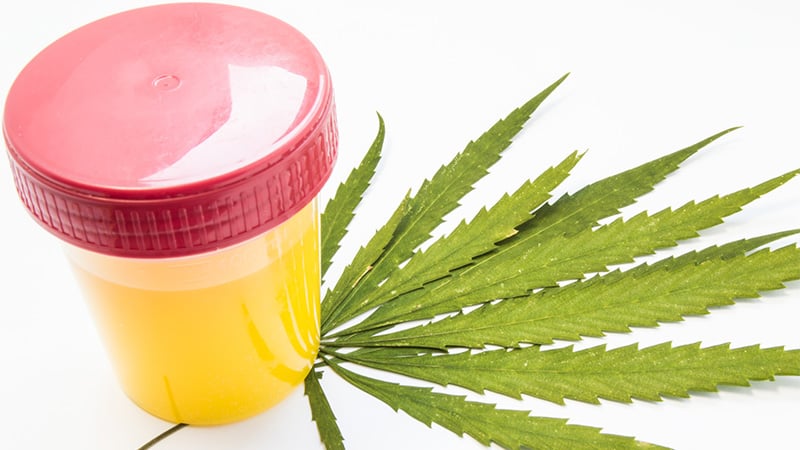
Probably. HHC will most likely cause a person to fail a drug test, although some anecdotal evidence suggests that it won’t. HHC is chemically similar to THC and will trigger the same positive results if it’s present in the person’s system when the test is administered.
However, HHC is not as biologically active as THC and could be metabolized more quickly and eliminated from the body sooner. The safest bet is to assume that HHC will cause you to fail a drug test the same way THC will and avoid using it if you know you will be tested.
Wrapping Up: Is HHC Legal Where I Live?
While the laws are confusing and often contradictory, hemp-derived HHC remains legal in most states. Part of this is because this cannabinoid hasn’t been around long enough to draft new laws, and part of it is because it can be derived entirely from hemp.
With that said, the laws aren’t always clear, and they change all the time. It’s important to familiarize yourself with your local state laws before placing an order or using HHC.
With upcoming changes involving the MORE Act, CAOA Act, or other cannabis legislature, it’s highly likely that HHC will be confirmed legal throughout the country within the next 24 months.
FAQs on HHC Legalities
Is HHC Legal? Below is a short list of the commonly asked questions about HHC’s legal status.
1. Is HHC Natural or Synthetic?
HHC is a naturally occurring cannabinoid, but only trace amounts of it are found in the raw plant. To increase yield, CBD derived from industrial hemp is converted into HHC.
2. Is HHC Legal Federally in the US?
HHC sourced from hemp is technically made legal by the 2018 Farm Bill. However, state HHC laws vary. Some states follow federal hemp law, making them legal hemp derived products, while others ban or prohibit its sale and use. That said, hemp derived HHC falls into a gray area, so always check your state regulations regarding HHC.
3. What Class of Drug is HHC?
Similar to related THC isomers like delta 8 and 10, HHC is classified as a cannabinoid, and it binds to the cannabinoid receptors.
4. How Psychoactive is HHC?
HHC is a psychoactive compound that can get you high, with effects similar to delta 9 THC. However, compared to THC, it’s not as intense. Do note though that HHC, like THC, can also increase drug addiction risk.
5. Will HHC Fail a Drug Test?
Yes. HHC can make you fail a drug test, especially since its chemical structure is very similar to delta 9 THC.
